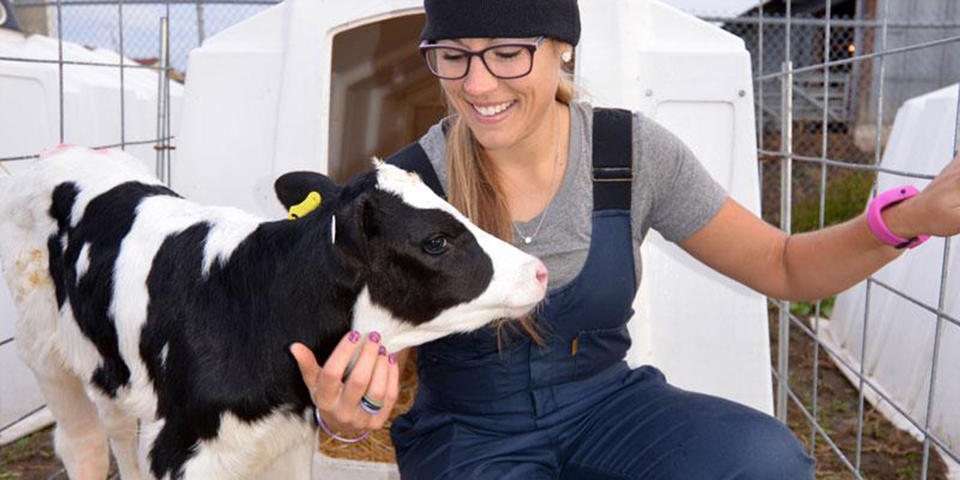The Veterinary Sciences graduate program provides high-quality research training to help graduates discover and improve ways to benefit the health and well being of companion and food animals and wildlife.
The PhD program prepares independent basic and applied scientists for successful careers in academia, industry, or government. The MS program instills technical competencies to promote research and medical practice careers. Students choose from four areas of scientific investigation.
- Infectious and zoonotic disease
- Population medicine
- Small and large animal clinical science
- Ecosystem health
Prospective students interested in the VMED program have the opportunity to connect with our extensive faculty that are experts in various research fields. Those interested in practicing veterinary sciences in a clinical setting should refer to the DVM program.
Application criteria
Applicants interested in the VMED graduate program should review the following preferred performance standards:
- A minimum grade performance average (GPA) of 3.25 (on a four-point scale);
- Laboratory experience is strongly preferred but not required;
- DVM or equivalent degree preferred, but not necessary;
- GRE test scores are not required to apply.
International applicants
Prospective students whose native language is not English will be considered if they have received the following minimal scores obtained within the past two (2) years of the graduate program start date from one of the following English proficiency examinations:
- TOEFL: total score of 79; reading subscore of 19; and writing subscore of 21
- MELAB: 80
- IELTS: total score of 6.5, reading subscore of 6.5, writing subscore of 6.5
Note: Review the Graduate School's English Language Proficiency page to review other acceptable tests to demonstrate language proficiency.
What to expect
Tuition, fees and funding
- First year: The VMED graduate program supports incoming PhD students during their first academic year with a Research Assistantship position, which includes a $29,000 annual stipend, tuition waiver, and healthcare benefits.
- Subsequent years: Faculty advisors provide financial support. After successfully passing preliminary exams given during the second year of a PhD program and if the student is paid at the base stipend level, students are eligible for a $1,000 increase.
- MS students must identify a faculty advisor who will provide financial support during their training.
- A number of grants and fellowships are also available. Interested students should consult the U of M Graduate School and the college’s graduate program grant and fellowship opportunities.
- Additional information on tuition and fees are detailed on the U of M OneStop.
Housing Information
Meet the Veterinary Sciences faculty
Our faculty will help to provide you with individualized training to gain new knowledge in the understanding of comparative aspects of biology and pathology across animal species, animal models of human disease, and animal diseases and populations. Our faculty conduct research in infectious and zoonotic diseases, the development of novel treatments for cancer and other diseases, genetic research and therapies, virology and bacteriology, population medicine, and ecosystem and wildlife health.
Meet our Veterinary Sciences graduate students
MS and PhD students in the Veterinary Sciences graduate program are engaged in research related to animal and human health and welfare, as well as ecosystem health. Our students study infectious and zoonotic diseases, the development of novel treatments for cancer and other diseases, genetic research and therapies, virology and bacteriology, population medicine, and ecosystem and wildlife health, among other areas of research.
Need additional information or advice?
Interested students should contact Dr. Ned Patterson, Veterinary Sciences Director of Graduate Studies, or Dr. Sandra Godden, Interim Associate Dean of Graduate Programs.
